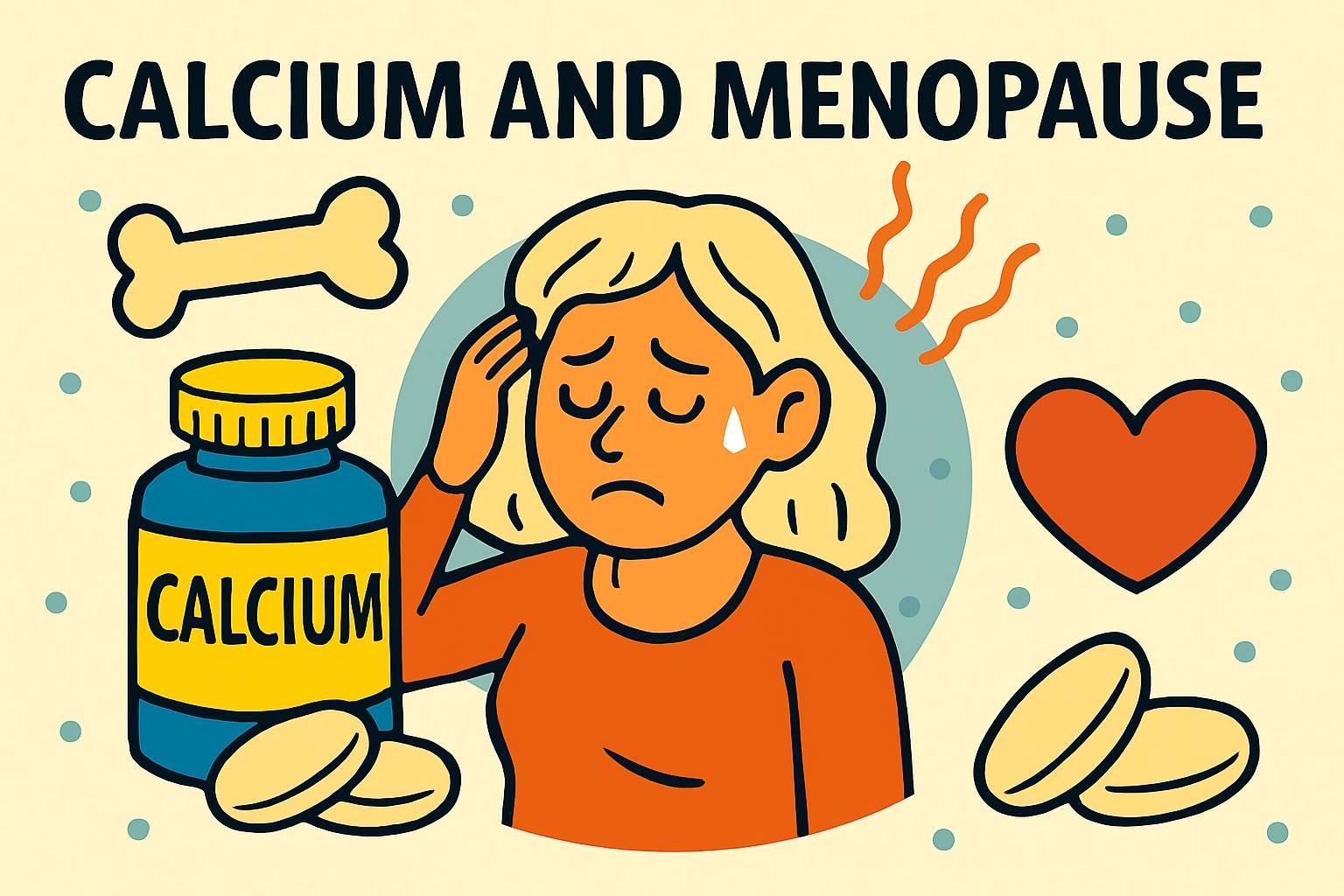
1.  Estrogen Enhances Intestinal Calcium Absorption—More Important Than You Think
Estrogen Enhances Intestinal Calcium Absorption—More Important Than You Think
A 2025 study published in Scientific Reports revealed that estrogen activates the ERβ receptor, significantly increasing the expression of calcium transport proteins PMCA1b and TRPV6 in the intestine. This enhances calcium absorption and reduces the risk of osteoporosis (Nature.com, 2025). In short, estrogen doesn’t just affect bones—it directly impacts how efficiently your body absorbs calcium.
2.  Calcium + Vitamin D Supplementation: Helpful or Harmful?
Calcium + Vitamin D Supplementation: Helpful or Harmful?
a. Long-Term Follow-Up: Lower Cancer Risk, But Higher Cardiovascular Risk
A 22.3-year follow-up of over 36,000 women from the WHI trial found:
|
Outcome |
Change in Risk |
|---|---|
|
Cancer mortality |
↓7% |
|
Cardiovascular mortality |
↑6% |
|
All-cause mortality |
No significant difference |
◇ Subgroup analysis showed that adherent users (≥80% compliance) experienced 29% fewer hip fractures
(OBG Project, 2024, NIH ODS Update, 2024).
b. Minimal Bone Density Gains, No Clear Fracture Reduction
A 2025 meta-analysis concluded that in postmenopausal women already on osteoporosis medications, calcium + vitamin D supplementation yielded limited improvements in bone mineral density (BMD) and did not significantly reduce fracture incidence
(European Journal of Medical Research, 2025).
The U.S. Preventive Services Task Force (USPSTF) draft guidelines state: Routine calcium and vitamin D supplementation is not recommended for healthy, community-dwelling older adults to prevent fractures or falls (USPSTF, 2024).
 Key Takeaway: Calcium Supplements Are Not a Magic Bullet
Key Takeaway: Calcium Supplements Are Not a Magic Bullet
-
Calcium + vitamin D supplementation can improve bone density and reduce cancer risk, but may increase cardiovascular death in some cases.
-
In women at high risk of osteoporosis or already undergoing treatment, supplementation offers clear benefits.
-
For the general menopausal population without bone issues, dietary and lifestyle strategies should be prioritized.
 Practical Tips
Practical Tips
-
Prioritize Dietary Sources
-
Aim for 1,200 mg of calcium daily
-
Best food sources: dairy (milk, yogurt), tofu, leafy greens (bok choy, kale), small fish (with bones)
-
-
Add Vitamin D When Necessary
-
Recommended daily dose: 800–1,000 IU
-
Supports calcium absorption, from sun exposure or supplements
-
-
Supplement if Needed
-
If diet falls short, use calcium supplements in ≤500 mg doses, taken with meals
-
Choose citrate or carbonate forms depending on tolerance
-
-
Lifestyle Matters
-
Engage in weight-bearing exercise (walking, dancing, stairs)
-
Get moderate sun exposure
-
Limit salt and alcohol; avoid smoking
-
 Conclusion
Conclusion
-
New findings: Estrogen’s role in regulating calcium transport opens a new door in menopausal health management.
-
Supplements show mixed results: They reduce cancer and fracture risk in some women but may raise heart disease risk.
-
Best strategy: Personalized, food-first approach combined with exercise and sunlight remains the safest and most effective.
 Key References:
Key References:
-
Wu Y, et al. Estrogen regulates duodenal calcium absorption… Sci Rep. 2025 (Nature)
-
Thomson CA, et al. Long-term effect of CaD supplementation… Ann Intern Med. 2024 (NIH PMC)
-
Migliorini F, et al. Vit D & calcium in drug‑treated postmenopausal osteoporosis… Eur J Med Res. 2025 (EJMR)
-
USPSTF Draft Recommendation. Vit D, calcium for fracture/fall prevention. 2024 (USPSTF)
-
NIH‑ODS Update. WHI CaD Trial long‑term outcomes. 2024 (NIH ODS)
Explore Supplements
Discover detailed information about dietary supplements and their ingredients.
Browse SupplementsMore Articles
Read more articles about nutrition, health, and dietary supplements.
Read More Articles